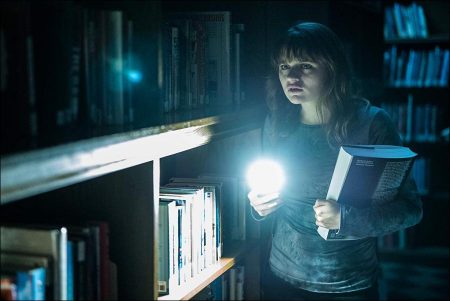The civilization process gives us a life that does not go out of routine, without excitement and triggers our quest for excitement.
From a descriptional perspective, fear is the triggering that occurs when an organism’s life is threatened. So much so that, except for psychopathological processes, triggers only occur when faced with a real danger. At this point Christophe Andre’s (2016) analogy of the fear and alarm system is quite appropriate: Imagine a car or home alarm. In the event of danger, such as forcing the lock, this alarm must be strong enough to wake the environment. It should be deactivated after drawing enough attention.
In the context of evolutionary personality psychology, psychological mechanisms that help organisms survive are maintained. Just like other animals, people need to be afraid throughout their lives. In this way, we can fight against dangers in the best way.
In addition to being a psychological mechanism that comes into play in threatening situations, people consciously seek fear. In the past, horror stories that have spread from ear to ear are now being replaced by cinema films, video games and books.
We will review Jeffrey Goldstein, one of the social psychologists who study the attractiveness of fear in psychology, “Why We Watch: The Attractions of Violent Entertainment.” Goldstein’s study reveals the difference in answers to why people choose to be afraid.
Before we begin, we want to make a note. In the foreign literature, the Turkish word for violence is “violence”. The word violence in Turkish is generally used today with the meaning of “fighting, brute force”. The word Violence, on the other hand, corresponds to the excesses in the behaviors and emotions exhibited. So you can see that the bloody and scary scenes in a movie are expressed with the word violence. In this review you will read, the word “violence” is used as described above.
Gender factor and self-proving effort
According to Goldstein’s (1998) findings, violent entertainment such as horror movies and horror-themed video games are mostly addressed to men when the gender variable is considered. This is mostly seen in males in groups.
For example, a boy may be watching a horror movie alone in his room, but on this experience he talks to the group of men he is in and shares it with them. Such exchanges are important for the establishment of the “besties” relationship between men. In other words, even if violent entertainment is experienced alone, it has a certain social purpose. So much so that men, even though they find these scenes uncomfortable, are going to follow their peers as a cool, calm, not afraid person to prove themselves to them.
Gender roles
The differentiation between genders in relation to the biological gender you have read above and the effort to prove yourself is related to the gender roles that we create in society. In fact, a group of adolescent girls and a group of adolescent boys were given the opportunity to watch the horror movies of their choice. The extent to which these young people will feel fear of exploding corpses and alive organs was investigated. Even though both groups find it difficult to monitor these bloody “excesses grup, the groups reacted to these images in different ways.
During the film, when the extreme scenes were passed, the girls looked at the screen a little further away and started to talk about irrelevant subjects; it was observed that males did not feel comfortable enough to increase the distance between themselves and the screen and looked at the screen with determination. After the event, one of the young girls Goldstein interviewed said that için to watch these scenes he squeezed his leg until it hurts and kept him busy oy. It is understood that the participating men tried to act in accordance with the stereotyped male roles. As a result, gender roles can shape both gender behaviors with biased expectations such that women are more prone to fear and men remain unresponsive and rigid.
Unexplained emotions and quest for excitement
According to Goldstein (1998), another reason why people turn to scenes of fear and violence is the civilization we live in. The fact that the civilization process provides us with a life that does not go out of routine, without excitement triggers our quest for excitement. The fact that we live a life without freak in daily life and that we are lost between the school-work-home triangle causes us to establish a connection between these scenes and even think as if we live in those scenes.
According to McCauley (1991) examining the effect of the search for excitement on the attractiveness of horror films, individuals seeking high excitement find and enjoy horror films more attractive than those seeking less excitement.
Emotional expression
The most common features of violent films are that they are scary and exciting. From a physiological point of view, the sympathetic nervous system is stimulated when organisms encounter fear stimuli, and the adrenaline hormone secreted from the adrenal glands increases blood pressure and increases heart rate, resulting in more intense emotions.
Of course, such scenes and images can also leave emotional damage on individuals. There are those who do not welcome these stimuli that ”shake Birey the individual, as well as those who do. Another finding of Goldstein’s (1998) study is that these physiological and emotional stimuli produced by horror films allow the individual to freely express his / her emotions and thus provide a sense of relaxation.
A virtual context
Another feature of fear elements is that they can be created in a virtual context and attract us. So we use this way to safely experience the emotions we associate with danger and fear. As seen in Goldstein’s work mentioned above, these images lose their appeal and our interest when we do not feel safe. In these situations, we are free to go out of this virtual reality at any time.
Visits: 100






